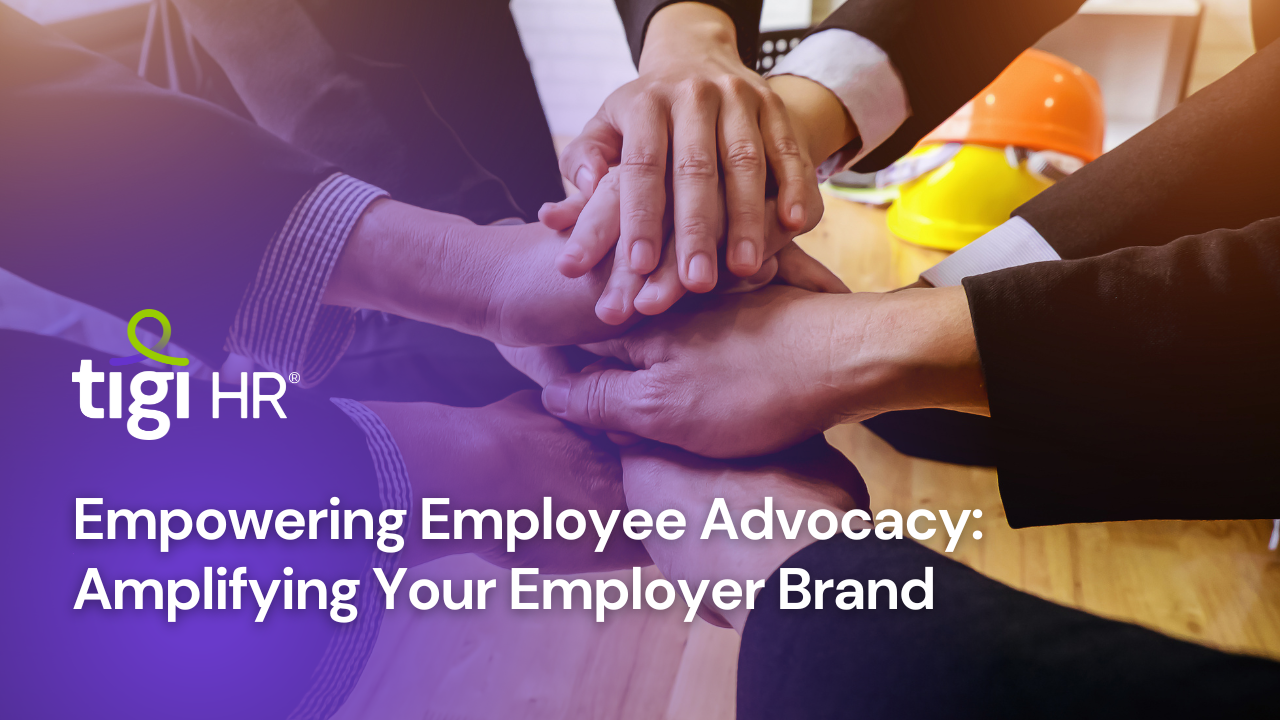In today’s competitive job market, building a strong and authentic employer brand is crucial for attracting and retaining top talent. While traditional marketing efforts play a significant role, the rise of employee advocacy has introduced a game-changing dimension. Empowering employees to become advocates for your organization not only enhances your brand’s credibility but also taps into the power of genuine storytelling. This article delves into the concept of employee advocacy, its benefits, and strategies for harnessing its potential to amplify your employer brand.
Decoding Employee Advocacy
Employee advocacy involves mobilizing your workforce to authentically promote your organization on social media, networking events, and other platforms. Instead of relying solely on marketing campaigns, employee advocates become organic brand ambassadors who share their positive experiences working for your company. This human touch adds credibility and resonates strongly with potential candidates.
The Power of Employee Advocacy
- Authenticity and Credibility: Employee advocates offer a real and unfiltered perspective of your organization. Their experiences, stories, and insights carry more weight than traditional marketing messages.
- Wider Reach: With social media platforms serving as a global stage, employee advocates can extend your brand’s reach far beyond what traditional marketing could achieve.
- Talent Magnet: Organizations with strong employee advocacy programs attract top talent. Candidates are more likely to consider job opportunities with companies that receive positive endorsements from their employees.
- Retention and Engagement: When employees are given a voice and are encouraged to share their stories, they feel valued and engaged, leading to improved job satisfaction and reduced turnover.
- Cost-Effective: Employee advocacy is a cost-effective way to market your employer brand. It leverages your existing workforce to amplify your message without the need for large advertising budgets.
Statistics and Insights
A study by Hinge Research Institute revealed that companies with active employee advocacy programs were 58% more likely to attract new talent. Additionally, the 2019 Edelman Trust Barometer highlighted that employees are trusted more than CEOs or government officials when sharing information about their company’s work environment and business practices.
Moreover, according to LinkedIn’s Global Talent Trends 2021 report, 49% of professionals believe that employee advocacy is an effective way to showcase company culture, and 45% of professionals feel more engaged when their employer shares content about its mission and values.
Strategies for Effective Employee Advocacy
- Cultivate a Positive Culture: Employee advocacy starts with a positive workplace culture. Employees are more likely to advocate for a company they genuinely believe in and are proud to be a part of.
- Provide Training and Resources: Offer training on social media best practices and guidelines for sharing company-related content. Equipping employees with the right tools ensures consistent and appropriate advocacy.
- Recognize and Reward Advocates: Acknowledge and celebrate employees who actively advocate for the company. Recognition can be in the form of awards, incentives, or simply a heartfelt thank you.
- Encourage Storytelling: Encourage employees to share their personal stories and experiences. Authentic narratives resonate deeply with audiences and give a human touch to your employer brand.
- Leverage Social Media: Create a dedicated hashtag for employee advocacy and encourage employees to use it when sharing content. This helps in tracking and measuring the impact of your advocacy efforts.
- Showcase Diversity: Highlight diverse voices and experiences within your organization. This not only enhances authenticity but also appeals to a wider audience.
Real-Life Examples
- Starbucks: Starbucks encourages its employees to share their experiences and stories on the company’s official blog. This initiative humanizes the brand and creates a strong sense of community.
- Adobe: Adobe’s employee advocacy program, called “Adobe Life,” encourages employees to share their work experiences and insights on social media. This has significantly increased the company’s reach and engagement.
- Dell: Dell’s Social Media University offers training to employees on how to effectively use social media to advocate for the company. This program has empowered thousands of employees to become brand advocates.
Challenges and Considerations
While employee advocacy offers numerous benefits, it also comes with challenges such as ensuring consistency of messaging, addressing negative feedback, and respecting employees’ privacy and preferences.
Conclusion
In the digital age, authenticity and human connection are pivotal for building a strong employer brand. Employee advocacy taps into the power of genuine experiences and stories, creating a compelling narrative that resonates with potential candidates. The statistics and insights supporting the effectiveness of employee advocacy are a testament to its influence on attracting and retaining top talent.
By fostering a positive culture, providing training, recognizing advocates, and leveraging social media, organizations can empower their employees to become passionate advocates for the brand. As real-life examples showcase, when employees become the voice of the company, the impact on brand credibility, engagement, and talent acquisition can be profound. In a competitive job market, embracing employee advocacy can be the key to standing out and building a magnetic employer brand that attracts the best and brightest talent.
Also Check: Employee Storytelling, Job Searching strategies





